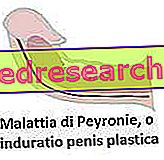
Characteristics of the medicinal product
Metalyse comes in the form of a vial containing a white powder and a pre-filled syringe containing a solvent, to form a solution for injection.
Metalyse contains the active substance tenecteplase.
Therapeutic indications
Metalyse is used to dissolve blood clots formed in vessels of the heart in patients suspected of having had an acute myocardial infarction (heart attack).
Metalyse is given within 6 hours of the first symptoms of heart attack.
The medicine can only be obtained with a prescription.
Method of use
Metalyse must be prescribed by doctors experienced in the use of thrombolytic treatment.
Treatment with Metalyse should be started as soon as possible after the onset of heart attacks.
Metlyse should be given as a single intravenous injection (into a vein) in about 10 seconds. The dose must be appropriate for the patient's weight (see package insert). It is given along with other medicines (aspirin, heparin) that prevent the formation of blood clots.
Mechanisms of action
Metalyse is a thrombolytic (also known as fibrinolytic, as it dissolves blood clots, which are made of a substance called fibrin). The active ingredient in Metalyse, tenecteplase, is a modified form of the natural enzyme, activator of human plasminogen. It is produced by a method known as "recombinant DNA technology": that is, it is obtained from a cell in which a gene (DNA) has been introduced which makes it able to produce it. Tenecteplase is a plasminogen activator, ie it triggers the transformation of a substance (plasminogen) into plasmin. Plasmin degrades clots. In myocardial infarction, clots have formed in the arteries that go to the heart. Metalyse dissolves blood clots and helps restore normal blood flow to the heart.
Studies carried out
The efficacy of Metalyse was evaluated in a large study (ASSENT II) on approximately 17, 000 patients. Metalyse in the form of an injection was compared with alteplase (an exact copy of the plasminogen activator of human tissue produced with recombinant technology) as an infusion (drip into a vein). In the studies the mortality rate at 30 days after treatment and the bleeding rate were studied.
Benefits found following the studies
Metalyse has been shown to be as effective as alteplase in reducing mortality to 30 days (6.2% for both treatments). Metalyse showed a significantly lower incidence of non-intracranial (not in the brain) bleeding compared to alteplase, which results in a lower need for transfusion.
Associated risks
The main side effect of Metalyse is bleeding, usually at the injection site. It can also cause hypotension, irregular heartbeat and chest pain. These side effects occur in more than 1 in 10 patients. Cerebral hemorrhage (in the brain) can occur in less than 1 in 100 patients, which can lead to death or chronic disability. For the full list of all side effects reported with Metalyse, see the Package Leaflet.
Metalyse should not be used in people who are hypersensitive (allergic) to tenecteplase or a
any other excipient or to people who have bleeding or have had recent bleeding or major surgical operations, or who have a disease that causes bleeding (eg a stroke in the past or severe hypertension). For the complete list of limitations, see the package leaflet.
Grounds for approval
The Committee for Medicinal Products for Human Use (CHMP) decided that Metalyse's benefits are greater than its risks for patients requiring thrombolytic treatment of suspected myocardial infarction. The CHMP therefore recommended that Metalyse be given marketing authorization.
Further information
On 23 February 2001, the European Commission issued a marketing authorization valid throughout the European Union to Boehringer Ingelheim International GmbH for Metalyse.
The marketing authorization was renewed on 23 February 2006.
For the full version of the evaluation (EPAR), click here.
Last update of this summary: March 2006



